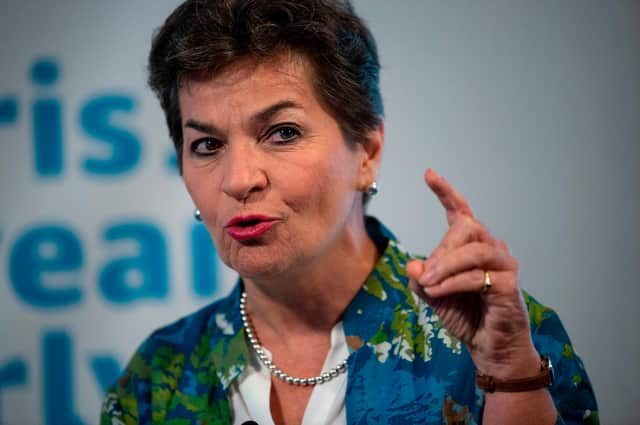At what point does the fun stop for our farmers?- Brian Henderson


And while it would be in bad taste to detract from the serious problems and social ills associated with gambling addiction, it probably doesn’t take too much of a leap of imagination to see some parallel risks running in the farming sector.
Reading an Irish farming paper, I found the declaration from one commentator that “the fun had gone out of the job” genuinely struck me as quaint, the sort of thing which belonged to a bygone age.
Advertisement
Hide AdAdvertisement
Hide AdFor, while you can’t pick up a farming magazine without reading about the challenges ahead, the “fun” word isn’t a term that often comes into it. Efficiency, sustainability, profitability, resilience – these seem to be the goals to which we must endlessly strive.
I can’t think when I last read anything in any of our own farming papers about the enjoyment of the job, the satisfaction of a day’s work well done, the feeling of pride in the outcome or the sense of fun. True, the occasional “let’s rise to the challenge” clarion call of forced optimism sometimes rears its head, but seldom does it hold out the promise of joy at the end.
Perhaps the only recent sign of optimism came from the young farmers last week in their letter to cab sec Mairi Gougeon, stating that they were ready willing and able to take up the multi-faceted challenges of mitigating climate change, improving biodiversity levels while still providing the country with wholesome, nutritious home grown food.
But even here it wasn’t the unfettered, joyful optimism which might be expected of those who are yet to be jaded by life and, to be honest, it had the slight air of desperation which often afflicts those who feel they are being unfairly persecuted.
I’d have to say that the noise around the COP 26 conference in Glasgow hasn’t done much to boost the morale of the farming sector buffeted by accusations over our emissions – or indeed for the mental wellbeing of wider society as a whole.
For, despite the usual political showboating, the event and the inevitable sideshows of demonstrations and protests seem to have revolved around blame and accusation, division and antagonism rather than focus on fostering the collaboration and co-operation required to address the huge global issue which humanity faces.
And while the endless coverage of youth from across the world claiming dissatisfaction with the performance of their elected leaders should egg politicians on to work harder at finding a solution, expressions of discontent and disaffection are nothing new.
Apparently the 24/7 unremittingly depressing coverage of the climate change crisis has resulted in serious anxiety and mental health problems in schoolchildren who have been convinced that the world is going to hell in a handbasket with little chance of redemption.
Advertisement
Hide AdAdvertisement
Hide AdI think this phenomenon is also operating in the farming sector – and even if you know accusations such as the picture being painted of the industry’s wicked role in greenhouse gas emissions are false, if you hear such vilifications repeated often enough they can make you question your own reason.
So I was massively reassured when similar thoughts on the conference were expressed in the TB Macaulay lecture by one of the leading players in the UN’s climate change efforts, Christiana Figueres, who famously brokered the historic Paris agreement in 2015.
Throwing diplomatic language aside, she said that the attitude and tone operating within the conference was a huge hindrance to delivering a successful outcome – and that the event had evolved into a circular firing squad. And rather than seeking unity, both the delegates and the demonstrators had focused instead on division and criticism of those who thought differently to them.
And she warned that with the debate becoming so polarised, the options for change were reduced to the binary and unhelpful mentality of who’s right and who’s wrong threatening to see the event descend into a space of mutual blame and condemnation.
Calling for the muskets to be put down, she said there was no one right or wrong answer and a multitude of approaches would be needed to address the problems of climate change:
“And underneath the grief and the anger we will find that we harbour a hunger for healing and joy.”
Comments
Want to join the conversation? Please or to comment on this article.